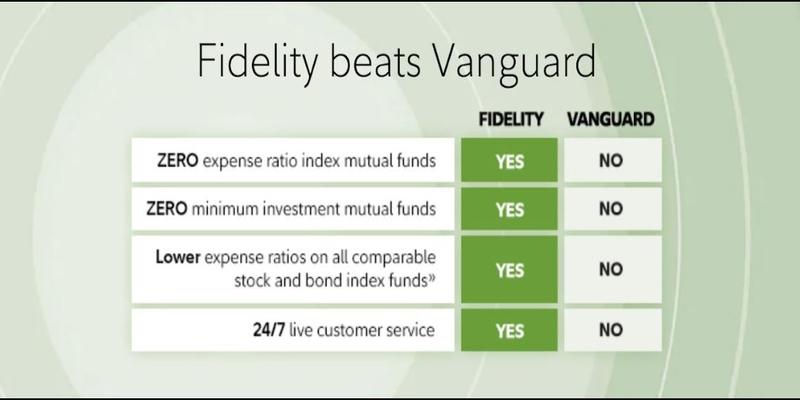Pay Attention to These 5 Most Common Bond Buying Mistakes
Bonds are a kind of fixed investment. You buy them from a private or government company and in return they promise to give you considerable profit on your amount. They are a good source for a steady stream of income in the form of monthly payments. Its the best way to make money in the long term. They are a great choice if youre looking for a steady and consistent income.
Different types of bonds offer various kinds of returns. But the thing to keep in mind is that with higher returns come higher risks. So before buying any type of bond, you must have complete knowledge of them and know the terms and conditions. In this way, you can avoid bond-buying mistakes.
This article will shed light on common bond buying mistakes that people make and how to avoid them. Let's have a look!
Top Common Mistakes To Avoid When Buying Bonds

Ignoring the Interest Rates
The relationship between interest rates and bond prices is not a direct one. As interest rates increase, bond prices decrease. This means that near the maturity date, bond prices will vary significantly as the interest rate changes. Many investors need to pay more attention to this relationship, but is it avoidable? To answer this question, we need to understand the mechanism of interest rate risks.
When you purchase a bond, you receive a fixed interest rate, also known as a coupon rate. If markets go up after you buy your bond, then bond prices will drop accordingly. If you continue to sell your bond further, then the bond will trade at a discount due to the lower returns that a buyer will earn on the bond.
On the other hand, when markets go down, the issued bond sells at a premium because higher coupon payments are offered on the previously issued bond compared to the freshly issued bond.
A variety of factors, such as money supply and demand, inflation rate, and fiscal and monetary government policy, determine market interest rates.
Trusting A Company Blindly
If you want to invest in a bond from a company just because the company is reputable in the market, it's not a good idea. There is no assurity that you will be able to redeem your bond or get a dividend. Rather, before buying bonds, you should do your homework.
Look closely into the market value of the company. Look at their tax status and income statement. The company should pay you twice the bond amount.
Analyze the Market Values

Everyone is well aware of the fact that bond prices are subject to market fluctuations and can increase or decrease. One of the reasons for this fluctuation is the market's opinion of the issuer and the issue.
If the market believes that the company will not be able to meet the obligation, then the bond price will decrease. If the market has a positive opinion of the issuer or the issue, then the price of the bond will increase.
Not Researching About Companys History
It is always a good idea for investors to review the company's past annual reports to understand the consistency of its earnings. It will also give an idea that the company is sincere with all of its tax, interest, and other obligations. You can find this information easily in the company's MD&''A. Investors can also look at the company's proxy statement to gain insight into the company's past. It will clear many doubts.
The purpose of this is to increase your confidence so the bond you're buying doesn't seem like a failed experiment.
Dont Ignore the Impact of Inflation
Inflation is another key factor that should be considered when buying bonds. It is generally regarded as an increase in the market value of goods. For some other kinds of investment, it might sound good, but when it comes to bonds, it could be a better sign. When there is inflation, your bond value will decrease, and you will be at a loss. So, it is advised to buy bonds with higher yields to avoid loss.
This is not to say that you shouldn't buy low-yield corporate bonds. You can protect your investments by getting higher returns on your stocks or other higher-yield bonds.
Maturity Rate Difference
Government and corporate bonds come in many different maturities. Corporate bonds have maturities ranging from two to twenty years, while government bonds can have varying maturities from ninety days to upto forty years.
Corporate bonds come in two varieties: unsecured bonds, which are not backed by any particular asset, and secured bonds, which are supported by some or all of the same assets. So, choose wisely which type of bond you want to buy depending on your preferences.
How to Avoid These Mistakes?

There are some ways you can lower the risk of bond buying mistakes. Some of these are:
- No matter how good a company is or how famous it is, only partially trust it. Do your research before investing in bonds through any company.
- Look at the history of the company and analyze its customer reviews to know if it's legitimate or a scam.
- Never ignore inflation. When the market value of goods is supposed to go high in the near future, you should consider selling your bonds.
- It is very important to analyze market value fluctuations as they highly affect bond prices.
Final Words
Generally speaking, bonds are risk-averse and safer investment options than other options. But sometimes, you make some mistakes while buying the bonds. It will lead you to considerable loss. Some of the common mistakes are not considering market values or blindly trusting a company with your money without doing any research.
This article highlighted some of the common bond buying mistakes. After reading this, you will get a good idea of what to look for next time when you buy bonds and how to avoid any loss.














